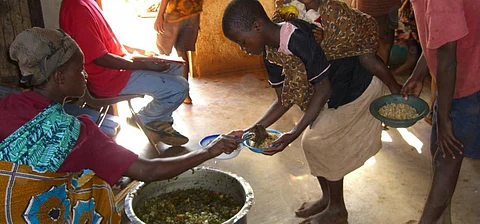

Nearly 44.8 million people in 13 countries of the southern African region suffer from food-insecurity, a report released by the Southern African Development Community (SADC) has said.
Food-insecurity increased by almost 10 per cent in the region in 2020 compared to the previous year. The main factors responsible included the novel coronavirus disease (COVID-19), climate change, conflict and economic challenges.
Acute malnutrition across the region could increase by 25 per cent or more over the remainder of 2020 and into 2021 due to COVID-19, the report added.
“Common climate-induced shocks ... economic challenges and poverty have been further exacerbated by the devastating impact of COVID-19 on communities,” the report said.
Maize production in Zimbabwe dropped 57 per cent due to poor rains. Dry conditions also affected production in Eswatini, Lesotho, south-eastern Angola, southern Madagascar and southern Mozambique.
Due to lockdown, diverse varieties of food had become inaccessible and unaffordable and had forced households to adopt negative eating practices, leading to malnutrition.
The region faces the triple burden of malnutrition — undernutrition, over-nutrition and micronutrient-deficiencies.
An estimated 20.5 million school children in the region will not have access to school meal programmes due to school closures, according to the United Nations World Food Programme Global Monitoring Report on School Meals.
Both, urban and rural populations in the region have been hit by the food insecurity. Seventeen per cent of the rural population were struggling to access food, due to price hikes, the report said.
Urban populations had suffered from significant income shocks, as a result of rising unemployment caused by lockdowns and other restrictions on movement.
South Africa’s jobless rate had reached 30 per cent in June 2020, with 350,000 people losing their jobs due to the pandemic.
In the Democratic Republic of Congo, the continuous conflict between armed groups and Congolese security forces has continued to affect the already vulnerable people, having a devastating impact on people’s capacity to access food.
SADC has recommended measures to help those impacted by increased food insecurity in the light of the findings. These include a combination of short-term measures such as social protection programmes to support those immediately affected.
Other measures would include more medium-long term strategies including the maintenance of domestic and international supply chains and incentives for the diversification of agricultural production.